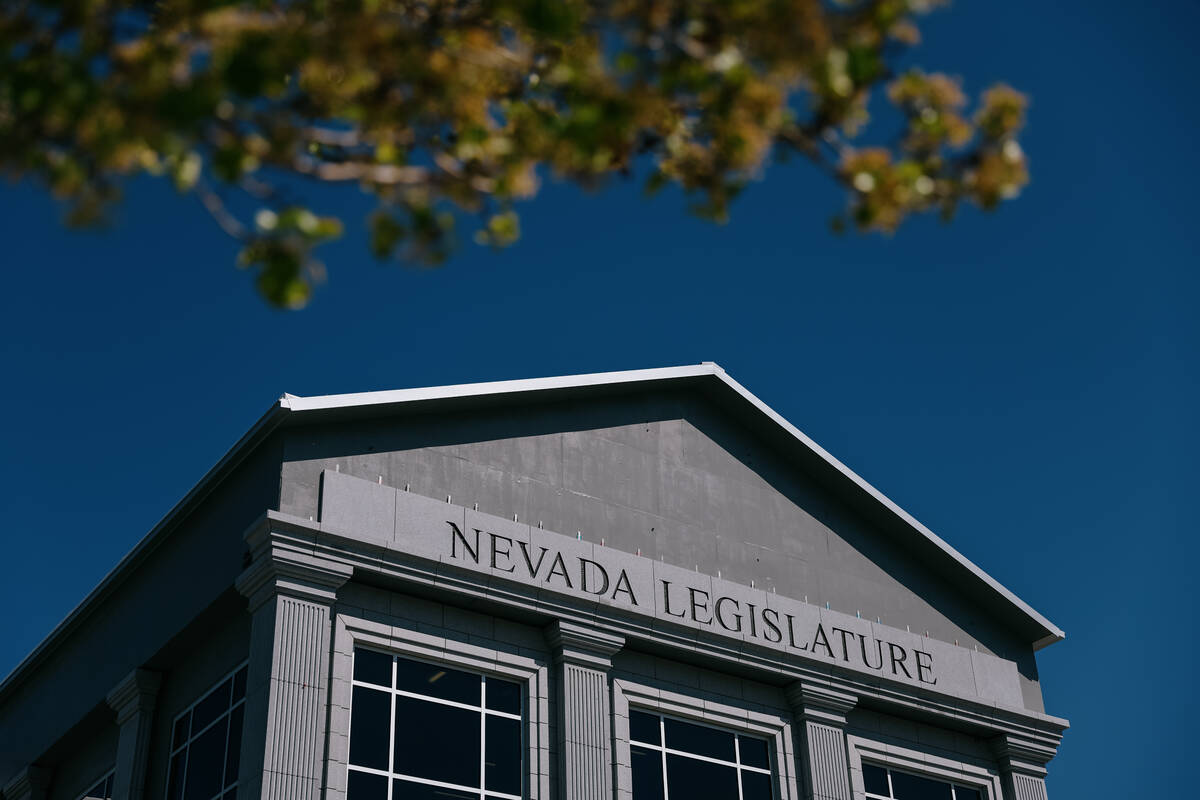GA lawmaker warns Nevada about film tax credit pitfalls
A bipartisan pair of state lawmakers urged the public to consider consequences of offering tax breaks to build film studios in Southern Nevada as the effort to reintroduce related legislation continued.
State Senate Minority Leader Robin Titus, R-Wellington, and Assemblymember Natha Anderson, D-Sparks, led a Monday afternoon webinar with Georgia lawmaker Marvin Lim, a member of the Peach State’s House of Representatives who was invited to discuss the effect of the unfettered tax credit system there.
“Every year we renew it out of, essentially at this point, FOMO, or the fear of missing out, what has long been there and maybe some inertia,” Lim told media members, lawmakers and others with a vested interest. “It has never quite met the promise of what it has been stated to give.”
Policymakers may return to Carson City for a special legislative session this month, following an announcement from Republican Gov. Joe Lombardo that he would call the Legislature back to the capital for “unfinished” business. That could include changes to the tax credit program for a studio project.
Summerlin Studios proposal
The concept to build Summerlin Studios near South Town Center Drive and West Flamingo Road was one of the biggest public policy debates in the 2025 Nevada Legislature’s session and remains a leading policy discussion in the lead-up to a special session. The regular session’s bill passed out of the Assembly 22-20 but was not considered in the Senate before adjournment in June.
Nevada could have awarded $120 million annually, or more than $1 billion in tax credits over 15 years, under the bill proposed in the regular session
Lim said Georgia has continued to extend its uncapped film tax credit program annually, which resulted in more than $1.3 billion in tax credits in 2022. He argued that the fiscal burden on the state coincided with the state’s choice not to expand Medicaid.
Georgia’s modern film tax credit program expanded to its current structure in 2008. The program has no limit on qualifying expenditures, no compensation caps for freelance laborers, no caps on spending in Georgia and the program does not expire. Third-party production audits became mandatory in 2023.
Related story: What can Nevada learn from Georgia’s film industry incentives?
In contrast, legislation setting up the Summerlin Studios project would require an initial investment of $400 million before credits become available in 2028, according to its backers. It mandates $300 million in production expenditures annually and includes claw-back measures if spending drops below $150 million in a fiscal year. It also includes local hiring requirements and requires third-party audits for tax credit applications, along with other required investments in community programs and a new vocational training studio.
‘All this is speculation’
Also on Monday, construction trade groups continued to lobby in favor of the studio project by dropping off thousands of postcards to lawmakers’ offices that urged their support of job creation. Titus said lobbying groups were “actively in the process right now (of) strong-arming the legislators to support this.”
Assemblymember Daniele Monroe-Moreno, a co-sponsor of the legislation, pushed back on the opposition presented in the webinar. In a Monday evening statement, she said she and Democratic Assemblymember Sandra Jauregui, the other co-sponsor, looked at Georgia’s program “as what not to do here in Nevada.”
Monroe-Moreno, a North Las Vegas Democrat, pointed to performance metrics with penalties instilled if investment milestones are not met, as well as requirements for educational support and workforce training and a requirement for 50 percent of qualifying production labor to be Nevada residents.
“These two programs could not be more different,” she said.
Titus said it’s hard for her caucus to consider their votes on legislation that has not yet been officially introduced. She said they know the language will mirror what was introduced during the regular session, but she also expects some adjustments.
“Many of my members are saying, ‘Listen, I can’t give you an absolute until we see what’s in that bill,’” Titus said. “Right now, all this is speculation.”
Contact McKenna Ross at mross@reviewjournal.com. Follow @mckenna_ross_ on X.


















